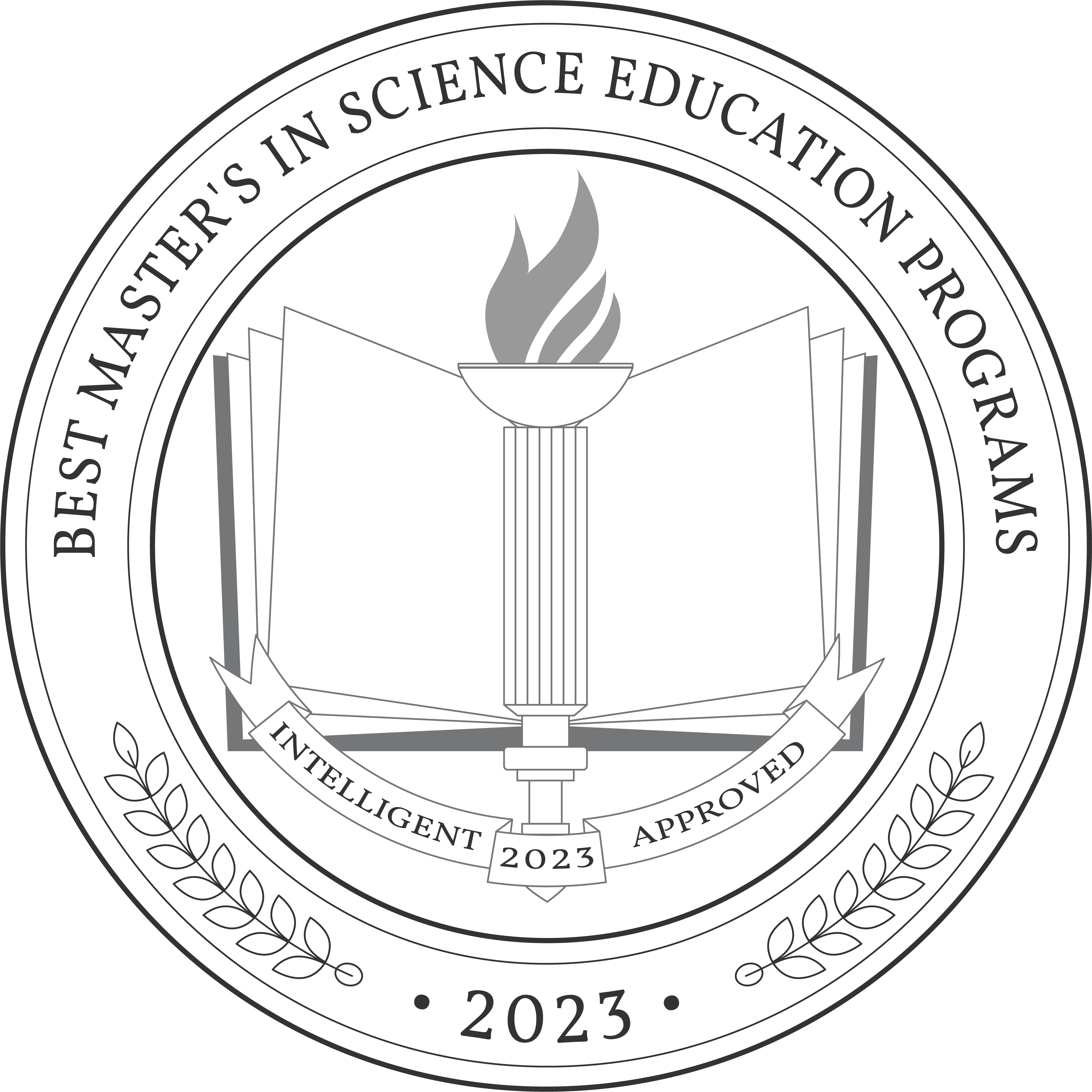Why This Matters
-
THE U.S. HAS OVER 24 MILLION CHILDREN AGE 12 THROUGH 17
There were 24 million children age 12 through 17 in 2019, and that number is expected to grow in the coming years. Many of these children are in high school and need science education.
-
MORE THAN 40,000 MORE HIGH SCHOOL TEACHERS NEEDED
The Bureau of Labor Statistics forecasts the need for high school teachers to grow 4% through 2029. This growth should create another 40,200 jobs, and that’s on top of positions that retiring teachers vacate.
-
EARN MORE THAN $60,000 PER YEAR
Teaching high school pays well. The median annual salary for high school teachers is $61,600, which is a few thousand more than the average salary for all pre-K through grade 12 teachers.
Our Research
We examined many Master’s in Science Education degree programs, including Master of Science (MS), Master of Arts in Teaching (MAT), and Master of Education (MEd) degrees. The programs listed include online, on-campus, and hybrid options to ensure flexibility among the available choices.
To ensure the quality of these programs, we only considered regionally accredited degrees. Many of the degree programs also have programmatic accreditation through the Council for the Accreditation of Educational Programs (CAEP).
We evaluated each program on the basis of flexibility, faculty, course strength, cost, and reputation. Then we calculated the Intelligent Score for each program on a scale from 0 to 100. For a more extensive explanation, check out Our Ranking Methodology.
- 54 hours to write this article
- 193 universities and colleges we assessed
- 252 education programs we compared
The Top 44 Master’s in Science Education Degree Programs

Discover More Options
What You Should Know About This Degree
Public teachers are regulated at the state level, and states have different requirements for becoming licensed or certified to teach. Most states accept a bachelor’s degree, but some require a master’s degree within a certain amount of time after starting your first job. Additionally, some states that do require a master’s degree will only accept one from a CAEP-accredited program. Check your state’s certification requirements, and choose a program that meets those requirements.
Some Master’s in Science Education programs are designed for teachers who already have certification, while other programs are created for individuals who aren’t yet certified or licensed teachers. Your professional background will dictate which type of program is right for you.
Most of these programs provide a broad foundation in the natural sciences. While this makes graduates adaptable to teach multiple different science classes, these programs might not provide the detailed knowledge that’s required to work in scientific fields outside of education. If you want to work in a lab or other non-school setting, a degree in a specific scientific field may be more appropriate.
The vast majority of these programs, including the online ones, have an experiential learning component that must be completed in-person. Make sure your current schedule allows for the completion of a student teaching stint or other in-person experiential requirement.
What’s Next?
Consider these questions as you research Master’s in Science Education degrees:
- Am I eligible for this program? Most of these programs require a bachelor’s degree or undergraduate coursework in an education-related field. Some programs also have professional experience or teaching certification requirements. Check a program’s eligibility requirements before applying.
- How long does it take to complete this online degree? These degree programs tend to run around 30 credits, although a few are longer. Most students complete 30 credits in about two years if they study full-time.
When you have a list of promising programs, check their websites or contact them directly to find out the details of the admissions process. You’ll need to know what admissions materials to send in for consideration and any relevant deadlines.
Also make sure you have a way to pay for the degree program. Talk with programs about scholarships and financial aid options. If you’re working, you may also qualify for tuition reimbursement from an employer.